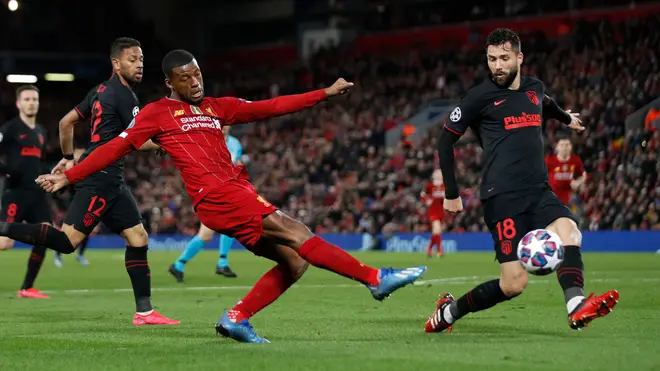
Tom Swarbrick 4pm - 6pm
22 April 2020, 09:31

Suspending professional football games before mass gatherings were officially banned due to the coronavirus pandemic was a potential lifesaver, according to an epidemiologist.
Games in England were suspended on March 13 after Arsenal head coach Mikel Arteta and Chelsea forward Callum Hudson-Odoi tested positive for Covid-19.
Government advice did no change until the following Monday, when Prime Minister Boris Johnson said emergency workers would no longer support such events.
The decision to suspend meant 45 matches due to be played in the Premier League and EFL that weekend did not take place, and Dr Rowland Kao from the University of Edinburgh says that was potentially a very significant and important call.
The Government has been criticised for allowing the Cheltenham Festival and the Liverpool v Atletico Madrid Champions League match to go ahead in the week beginning March 9.

Boris Johnson announces strict lockdown across the UK
Asked whether there would have been a negative impact of matches going ahead, Dr Kao said: "There's a good chance, yes. There's no guarantee with the number of infected people in the country at that time that somebody (with the infection) would have been there.
“But if someone had been there and been infectious, there was a potential for very large amounts of spread.
"The problem you have in making that comparison is there's no counterfactual. The people who got infected may have got infected anyway.
“But broadly speaking, the more things we would have done of that nature (banning mass gatherings), the better off we would be likely to have been.
"That figure that is mentioned of two-and-a-half to three people roughly infected by one person (prior to lockdown), those are under normal circumstances with normal amounts of contact.
Listen & subscribe: Global Player | Apple Podcasts | Google Podcasts | Spotify
"It's not entirely clear what happens when you change the contact to something where you have mass gatherings.
“Those gatherings are an opportunity for viruses to transmit in a more comprehensive way.
"It seems to be that direct transmission is important (for the spread of coronavirus) - infectious people coughing spray out an amount of virus over an area.
"Now the number of people you could infect depends on the number of people you come into contact with.
“So for a normal person on my street it might be one, maybe two people at most, but if you're sitting in a crowd for two hours imagine all the people around you that you could infect."
Dr Kao also envisages that the return of supporters to sporting events could be reliant on the development of an effective vaccine.
It is impossible to predict when such a vaccine will be developed, but even optimistic estimates say it could be as long as 18 months.
"Whatever we have it would have to be something that would stop an epidemic in its tracks, where we wouldn't have to go to the extent of the kind of social distancing we're having now," he said.
"There are very few things that can do that. A vaccine is one of the most important ones. It would have to be a pretty good vaccine as well."
Scotland's First Minister Nicola Sturgeon said on Monday: "I would absolutely say that people should not be under the expectation that large-scale mass gatherings will be starting any time soon.
"Because we must make sure we do everything we can to suppress this virus and, as we start to lift restrictions, make sure we've got the capability in place through 'test, trace, isolate' to replace those restrictions but also continue to have the understanding that some form of social-distancing is going to be required perhaps up to the point where a vaccine is available."